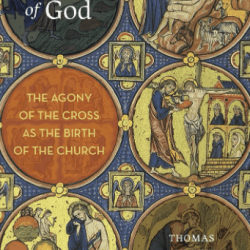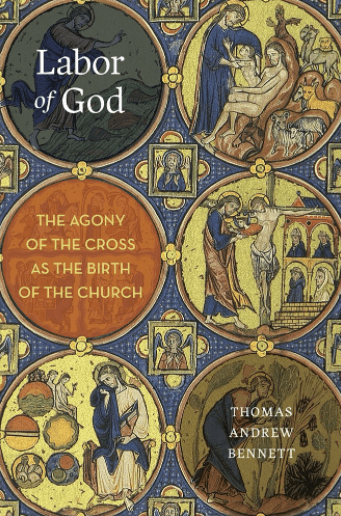 On Good Friday we remember the story of Jesus’ death. We participate in that death through eucharist in faith. And we celebrate the good news of that death in thinking and pondering the immense love of God for us — to clear our debt, to shoulder our load, and to remove our sins.
On Good Friday we remember the story of Jesus’ death. We participate in that death through eucharist in faith. And we celebrate the good news of that death in thinking and pondering the immense love of God for us — to clear our debt, to shoulder our load, and to remove our sins.
Perhaps three prepositions plus one of atonement will be of some use to you today:
He died with us. At the heart of the death of Jesus is that he has completely identified with us. One of the earliest Christian hymns, Philippians 2:6-11, said it like this:
6 Who, being in very natureGod,
did not consider equality with God something to be used to his own advantage;
7 rather, he made himself nothing
by taking the very natureof a servant,
being made in human likeness.
8 And being found in appearance as a man,
he humbled himself
by becoming obedient to death—
even death on a cross!
Notice that his death is part of his utter identification with us even to the death. He enters into our life all the way down into the darkness of death.
He died instead of us. But death is the punishment of God for sin, and we read about this from Genesis 3 on in the Bible’s Story. The immensity of the good news of the cross is that he shouldered our load and took upon himself our debt, the punishments of our sin, and did so in our place. He took upon himself the justifiable punishment of sin that we have incurred in dying instead of us. Romans 5:16: “The judgment followed one sin and brought condemnation.” Romans 6:10: “The death he died, he died to sin once for all” and 6:23: “The wages of sin is death.” And Jesus became that sin instead of us. 2 Cor 5:21: “God made him who had no sin to be sinfor us, so that in him we might become the righteousness of God.”
He died for us. That is, his death (and resurrection) set us free. He died for our benefit. The benefits of his death with us and instead of us is salvation, but I want to focus today on liberation. At Passover the theme was liberation from Egypt and the hope of liberation from Rome. That liberation is not just a political liberation but a liberation from sin that led to captivity. So, when Jesus says in Mark 10:45 that he came to serve and to give his life a “ransom” for many, he is saying he has entered into enemy territory by dying in our place in order to be the ransom price so that we might be set free from slavery – in its full compass.
He died over the powers. That is, his death and resurrection conquered the powers — the powers of sin, flesh, evil, and the devil and his minions, and he conquered the systemic powers of injustice that ruin life and are established to destroy the life of others. We find this theme so clearly in Colossians 2:13-15 (CEB):
13 When you were dead because of the things you had done wrong and because your body wasn’t circumcised, God made you alive with Christ and forgave all the things you had done wrong. 14 He destroyed the record of the debt we owed, with its requirements that worked against us. He canceled it by nailing it to the cross. 15 When he disarmed the rulers and authorities, he exposed them to public disgrace by leading them in a triumphal parade.










